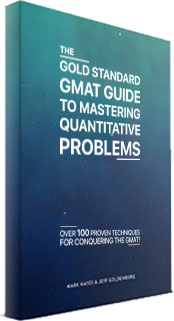
G
Jul 12, 2015
What the gmat is and is not
You have heard it all before. The GMAT is not a math test. It is not a literature exam, an essay, or a semester final either. All of this is absolutely true. The GMAT is unique and it is not like any test you have ever taken before. However, for all the talk about what the GMAT is not, there is surprisingly little information online about what it actually is. That changes right now. Today, I am going to clear the air and set the record straight. Understanding the nature of the GMAT will help you to prepare for it, and besides, you have the right to know what you are getting yourself into.
Let’s start with the basics, the Graduate Management Admission Test (GMAT) is administered by the Graduate Management Admission Council (GMAC) as a standard assessment for admissions into graduate business schools. The GMAT is a computer adaptive test, meaning that question difficulty changes with respect to your performance. If you get more questions correct, the test becomes harder, if you miss questions it becomes easier. In essence, this testing method is not geared towards calculating a raw score in a traditional sense. Instead, it seeks to pinpoint your level of competency by making adjustments to the test as you go.
Unlike other tests you have taken before, the GMAT is not designed to test you on its actual content. Yes, it does cover mathematical, verbal, and grammatical concepts. It is also true that you will need to be familiar with these concepts to perform well. However, you need to remember that the test makers at the GMAC use these topics as a delivery method for the true aspect that they are testing you on. The GMAT is a cognitive reasoning test. It is designed to measure how well you are able to think and reason. The concepts on the GMAT are nothing more than a means to an end.
So, how do you prepare for a test which scores you on your ability to think? You learn how to think and reason better. I know this sounds abstract, but hear me out. The GMAT uses a fixed number of question types. All of these question types demand that you use different kinds of logic to work through them. It is by learning these question types and mastering the structure of the test that you prepare for the GMAT. Fortunately, we already know what question types you are going to see on your test day. We also already know how to solve for each one and which techniques to use. Do you know what the best news is? At WYZprep we are all about sharing! Our goal is to give you the information that you need to ace the GMAT and get into the school of your dreams. No strings attached, no fine print! I am sure that you have questions, and we are more than happy to answer them. If you need a little extra help, give us a holler in the comments section. GMAT prep is tough, but we are with you. You are not alone.
Let’s start with the basics, the Graduate Management Admission Test (GMAT) is administered by the Graduate Management Admission Council (GMAC) as a standard assessment for admissions into graduate business schools. The GMAT is a computer adaptive test, meaning that question difficulty changes with respect to your performance. If you get more questions correct, the test becomes harder, if you miss questions it becomes easier. In essence, this testing method is not geared towards calculating a raw score in a traditional sense. Instead, it seeks to pinpoint your level of competency by making adjustments to the test as you go.
Unlike other tests you have taken before, the GMAT is not designed to test you on its actual content. Yes, it does cover mathematical, verbal, and grammatical concepts. It is also true that you will need to be familiar with these concepts to perform well. However, you need to remember that the test makers at the GMAC use these topics as a delivery method for the true aspect that they are testing you on. The GMAT is a cognitive reasoning test. It is designed to measure how well you are able to think and reason. The concepts on the GMAT are nothing more than a means to an end.
So, how do you prepare for a test which scores you on your ability to think? You learn how to think and reason better. I know this sounds abstract, but hear me out. The GMAT uses a fixed number of question types. All of these question types demand that you use different kinds of logic to work through them. It is by learning these question types and mastering the structure of the test that you prepare for the GMAT. Fortunately, we already know what question types you are going to see on your test day. We also already know how to solve for each one and which techniques to use. Do you know what the best news is? At WYZprep we are all about sharing! Our goal is to give you the information that you need to ace the GMAT and get into the school of your dreams. No strings attached, no fine print! I am sure that you have questions, and we are more than happy to answer them. If you need a little extra help, give us a holler in the comments section. GMAT prep is tough, but we are with you. You are not alone.

